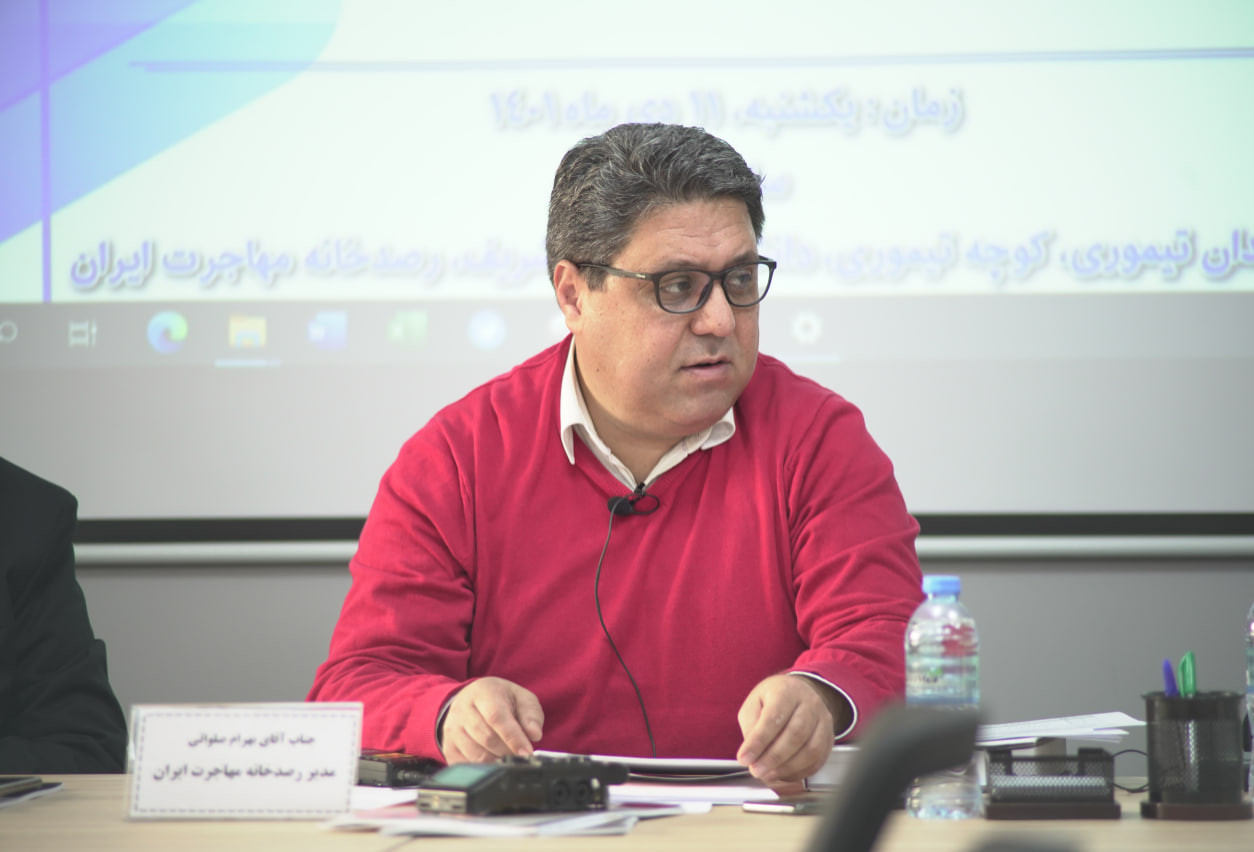Elites and university graduates want to be influential and effective in the country,

In an interview with the Student News Network (SNN), the head of Iran Migration Observatory said, “Our elites and university graduates are not after money; if they are hopeful about their effectiveness in the country, they will either not emigrate at all or return to the country.” In his conversation with the SNN journalist, Bahram Salavati pointed out that officials and the media sometimes present contrary figures regarding emigration of students and elites that lack precision and validity in many instances. He said, “I expect specialized media to promote the ways in which other countries use the capacities of their students and human capital instead of publishing facts and figures that are not properly backed up by evidence.”
“Elites and
university graduates want to be influential and effective in the country, not
just to make money,” Salavati says.
In an interview with the Student News
Network (SNN), the head
of Iran Migration Observatory said, “Our elites and university graduates are
not after money; if they are hopeful about their effectiveness in the country,
they will either not emigrate at all or return to the country.” In his
conversation with the SNN journalist, Bahram Salavati pointed out that
officials and the media sometimes present contrary figures regarding emigration
of students and elites that lack precision and validity in many instances. He
said, “I expect specialized media to promote the ways in which other countries use
the capacities of their students and human capital instead of publishing facts
and figures that are not properly backed up by evidence.”
In response to the
question of whether having all students and university graduates within or
outside the country will have an added value, Salavati said, “The answer is
certainly negative. If all of our country’s potential is abroad, it is
worrisome. China has a million students abroad and uses 70 percent of them.
Regarding migration or international mobility of students, we share the Chinese
perspective at the level of our society. If we want to be realistic, it is
about hoping to be influential.” The Head of IMOBS noted, “The Vice President
for Science and Technology has emphasized that our university students and
elites are not after money, but seek to be influential.”
He continued, “If we
use our human capital even if they are thousands of kilometers away, if they
have hope that they can be influential in their country, this will be a better
conversation. In such circumstances, we can be hopeful that people can
accumulate knowledge and wealth in other parts of the world and still serve
their community.”
Salavati added, “In
our religion, tradition, and culture, migration has generally been seen as a
positive event since it led to gaining a higher quality of education. We must
be realistic about the topic and think about benefiting the positives of
migration besides worrying about the reasons for it.”
- https://snn.ir/fa/news/۹۹۹۹۶۲/%D۸%B۵%D۹%۸۴%D۹%۸۸%D۸%A۷%D۸%AA%DB%۸C-%D۹%۸۶%D۸%AE%D۸%A۸%DA%AF%D۸%A۷%D۹%۸۶-%D۹%۸۸-%D۹%۸۱%D۸%A۷%D۸%B۱%D۸%BA%E۲%۸۰%۸C%D۸%A۷%D۹%۸۴%D۸%AA%D۸%AD%D۸%B۵%DB%۸C%D۹%۸۴%D۸%A۷%D۹%۸۶-%D۸%A۸%D۹%۸۷-%D۸%AF%D۹%۸۶%D۸%A۸%D۸%A۷%D۹%۸۴-%D۸%A۷%D۸%AB%D۸%B۱%DA%AF%D۸%B۰%D۸%A۷%D۸%B۱%DB%۸C-%D۹%۸۸-%D۸%A۷%D۸%AB%D۸%B۱%D۸%A۸%D۸%AE%D۸%B۴%DB%۸C-%D۸%AF%D۸%B۱-%DA%A۹%D۸%B۴%D۹%۸۸%D۸%B۱-%D۹%۸۷%D۸%B۳%D۸%AA%D۹%۸۶%D۸%AF-%D۹%۸۶%D۹%۸۷-%D۹%۸۵%D۸%B۳%D۸%A۷%D۸%A۶%D۹%۸۴-%D۹%۸۵%D۸%A۷%D۹%۸۴%DB%۸C
User Comments
- There is no comment!